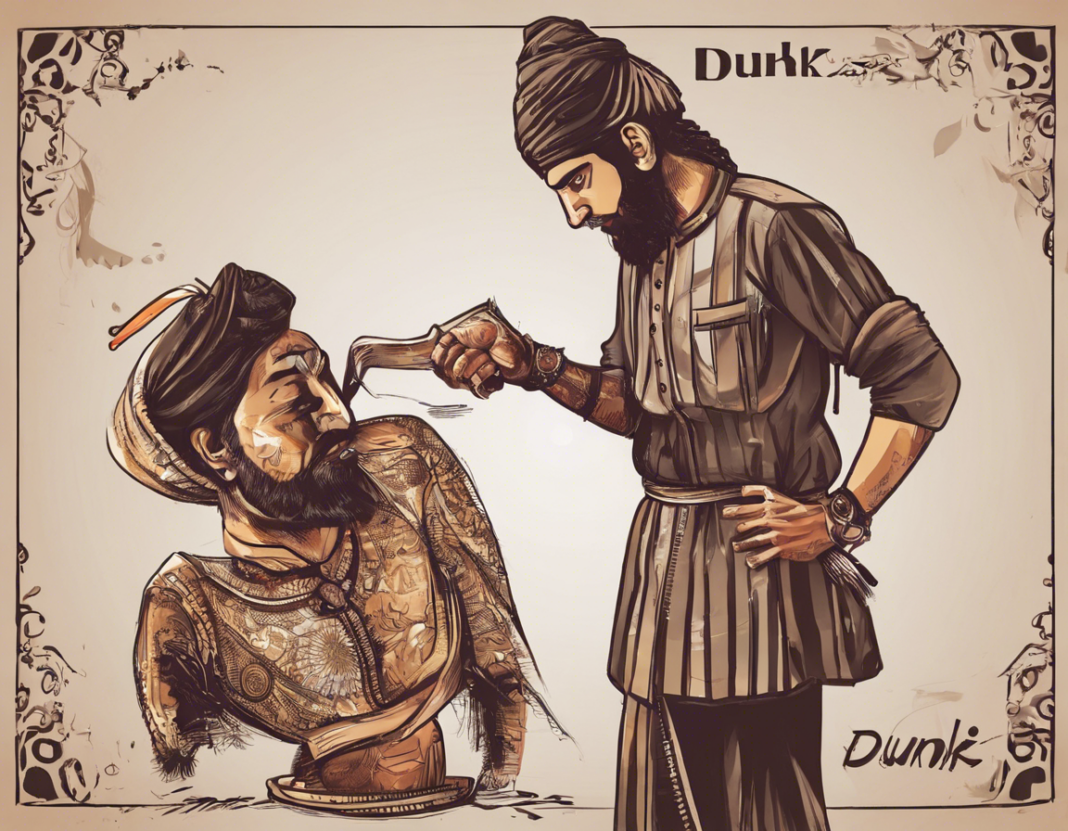Dunki in Hindi: Unraveling its Meanings and Significance
When venturing into the vast and colorful world of Hindi language and culture, one may encounter a plethora of intriguing words that bear unique meanings and significances. One such word that captivates the attention of many is “Dunki”. In this comprehensive guide, we will delve into the multifaceted meanings and significance of this intriguing term, exploring its various connotations, contexts, and cultural implications.
Understanding the Literal Meaning of Dunki
At its core, Dunki is a Hindi word that literally translates to “a small, flat piece of wood” or “a small dipping utensil”. However, the true essence of Dunki extends far beyond its literal definition, encompassing a range of metaphorical, symbolic, and cultural interpretations that enrich the linguistic tapestry of Hindi.
Dunki in Cultural Context
In the cultural landscape of India, Dunki holds a special place, symbolizing not just a physical object but also embodying deeper philosophical and spiritual connotations. Traditionally used in various rituals, ceremonies, and practices, Dunki serves as a conduit for spiritual connections, symbolic gestures, and moments of profound significance.
The Symbolism of Dunki in Hindi Folklore
In Hindi folklore and mythology, Dunki often features as a symbolic element in tales, fables, and legends, representing themes of transformation, enlightenment, and guidance. Whether portrayed as a magical object that imparts wisdom or as a humble tool for seeking blessings, Dunki resonates with people across generations, carrying with it a sense of mystique and wonder.
Dunki: A Tool for Self-Reflection and Contemplation
Beyond its traditional and mythological associations, Dunki can also be viewed as a metaphor for introspection, self-awareness, and spiritual growth. Just as the dipping utensil delves beneath the surface to draw nourishment, individuals can use Dunki as a symbol of going deep within themselves to uncover hidden truths, explore inner depths, and nurture their souls.
The Versatility of Dunki in Everyday Language
In contemporary Hindi usage, Dunki has evolved to assume various meanings and applications in everyday language. From referring to a small, insignificant object to symbolizing a minor yet essential component of a larger system, Dunki showcases the adaptability and richness of Hindi vocabulary in capturing nuanced concepts and ideas.
Exploring Dunki in Popular Culture
In modern times, Dunki has also found its way into popular culture, appearing in literature, cinema, music, and art as a motif that evokes nostalgia, tradition, and the essence of Indian ethos. Its resonance across different mediums testifies to the enduring appeal and relevance of Dunki as a symbol that transcends time and space.
FAQs About Dunki in Hindi
Q1: What is the origin of the word “Dunki” in Hindi?
A1: The word “Dunki” is derived from the Sanskrit term “Dhunka,” which means a small object or utensil used for dipping or immersion.
Q2: How is Dunki traditionally used in Indian rituals and ceremonies?
A2: Dunki is often used in rituals involving offerings, blessings, or purification, where it serves as a vessel for liquids or substances that are meant to symbolize spiritual meanings.
Q3: Can Dunki be used metaphorically in Hindi literature and poetry?
A3: Yes, Dunki is commonly employed as a metaphor in Hindi literary works to convey themes of depth, introspection, and transformation, adding layers of meaning to the text.
Q4: What are some common idiomatic expressions involving Dunki in Hindi language?
A4: Idiomatic expressions such as “Dunki se pani nikalna” (to retrieve water with a dipping utensil) are used to convey the idea of obtaining something with minimal effort or resources.
Q5: How has the symbolism of Dunki evolved over time in Hindi culture?
A5: Over time, Dunki has transitioned from being a literal object to a symbol of spiritual seeking, inner nourishment, and cultural heritage, reflecting the dynamic nature of language and symbolism.
In conclusion, Dunki exemplifies the richness, depth, and cultural resonance of the Hindi language, offering a window into the intricate tapestry of meanings, symbols, and metaphors that shape our understanding of the world. Whether viewed as a humble utensil, a spiritual emblem, or a literary motif, Dunki invites us to explore the boundless possibilities of language and imagination, reaffirming the timeless allure of words that transcend mere definitions to touch the hearts and minds of those who seek to unravel their mysteries.

